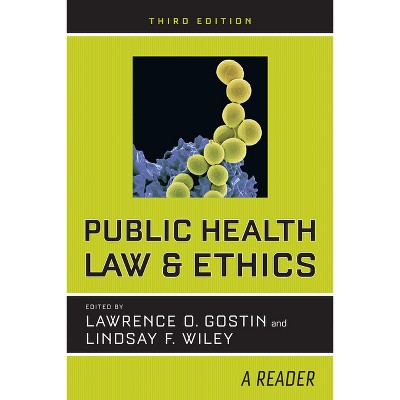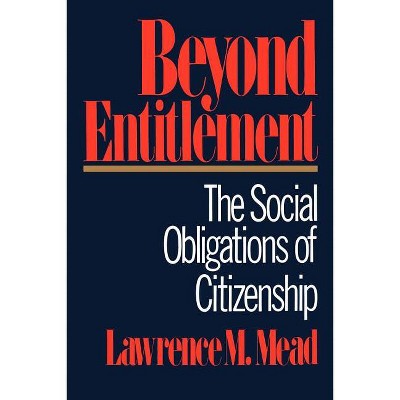Sponsored

Public Guardianship - by Pamela Teaster & Winsor Schmidt & Susan Lawrence (Hardcover)
In Stock
Sponsored
About this item
Highlights
- This book offers the first full examination of the legal role of public guardianship in 25 years, comparing current conditions to those when the last study was published in 1981.
- About the Author: Pamela B. Teaster, PhD, is professor, director, and chairperson of the Graduate Center for Gerontology at the University of Kentucky in Lexington, KY.
- 272 Pages
- Political Science, Public Policy
Description
About the Book
This book offers the first full examination of the legal role of public guardianship in 25 years, comparing current conditions to those when the last study was published in 1981.
Public Guardianship: In the Best Interests of Incapacitated People? is written to advance public understanding of what happens to disabled and elderly adults when no family member or friend is available to be a caregiver or guardian should it become necessary. It is the first major study on this critically important issue since 1981. Conducted by experts in gerontology, social work, public policy, and public health, it finds that, although progress has been made, guardianship programs around the country still are hampered by limited staff and resources.
Public Guardianship analyzes the full range of state statutes governing guardianship, including guardian eligibility, investigation, due process, rights, powers, costs, and monitoring. The authors report their case studies of public guardianship programs, marshaling and comparing field data from their surveys of stakeholders in ten states. The book concludes with a variety of recommendations for improving guardianship programs, including the authors' Model Public Guardian Act.
- Includes case studies on public guardianship programs in ten different states
- Offers bibliographic listings of works cited in the text
- Presents tables and charts showing important data
Book Synopsis
This book offers the first full examination of the legal role of public guardianship in 25 years, comparing current conditions to those when the last study was published in 1981.
Public Guardianship: In the Best Interests of Incapacitated People? is written to advance public understanding of what happens to disabled and elderly adults when no family member or friend is available to be a caregiver or guardian should it become necessary. It is the first major study on this critically important issue since 1981. Conducted by experts in gerontology, social work, public policy, and public health, it finds that, although progress has been made, guardianship programs around the country still are hampered by limited staff and resources. Public Guardianship analyzes the full range of state statutes governing guardianship, including guardian eligibility, investigation, due process, rights, powers, costs, and monitoring. The authors report their case studies of public guardianship programs, marshaling and comparing field data from their surveys of stakeholders in ten states. The book concludes with a variety of recommendations for improving guardianship programs, including the authors' Model Public Guardian Act.About the Author
Pamela B. Teaster, PhD, is professor, director, and chairperson of the Graduate Center for Gerontology at the University of Kentucky in Lexington, KY.
Winsor C. Schmidt, JD, LLM, holds the following appointments at the University of Louisville School of Medicine in Louisville, KY: Endowed Chair/Distinguished Scholar in Urban Health Policy; Professor of Psychiatry and Behavioral Sciences; Professor of Family and Geriatric Medicine; and Professor of Health Management and Systems Sciences. Erica F. Wood is assistant director of the American Bar Association Commission on Law and Aging. Susan A. Lawrence, PhD, has just completed a Master's Degree in social work at the University of Louisville. She received her PhD from the Graduate Center for Gerontology at the University of Kentucky in 2007. Marta S. Mendiondo, PhD, is assistant professor and biostatistician with a faculty appointment in the Department of Biostatistics, College of Public Health at the University of Kentucky.










